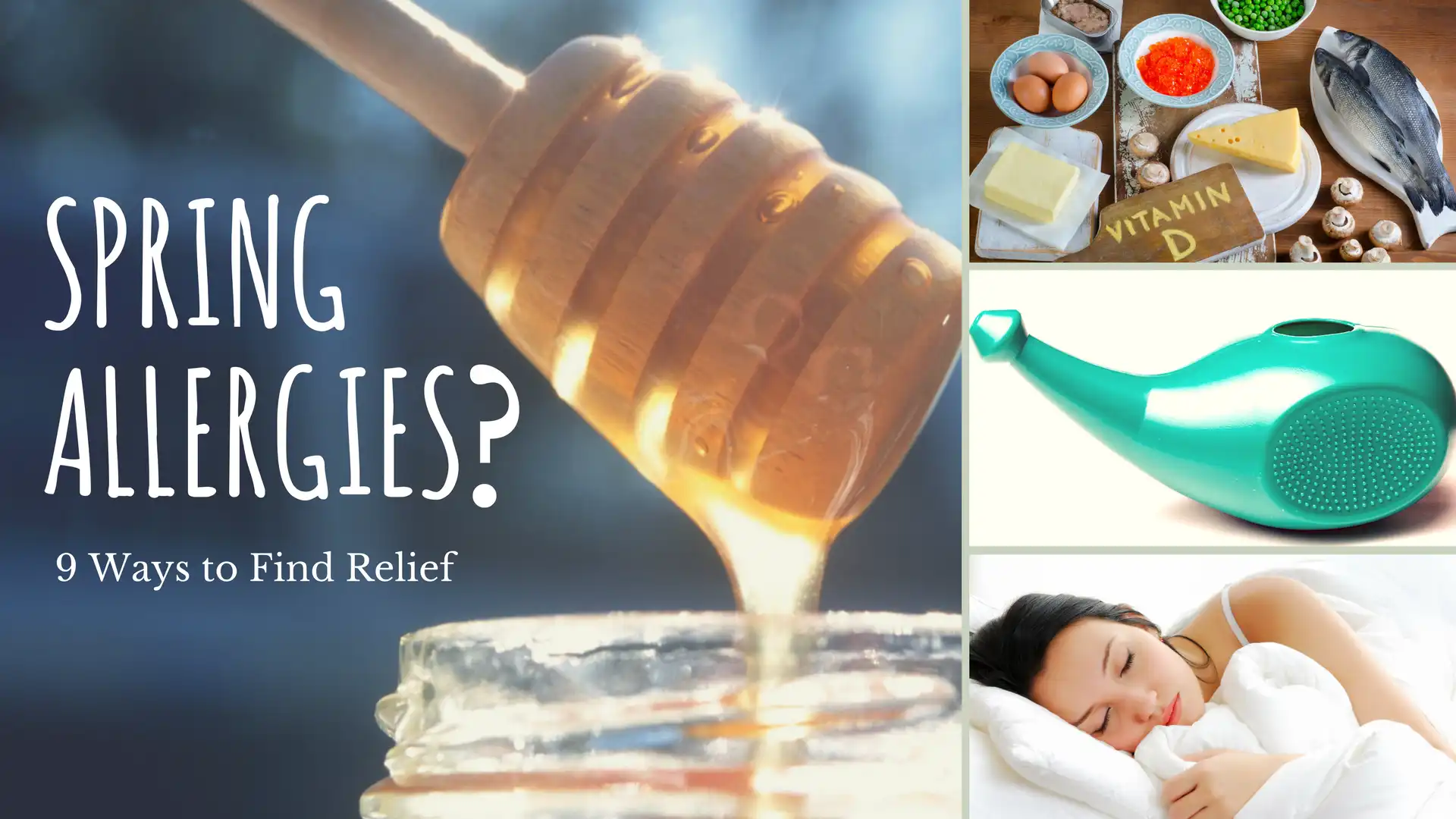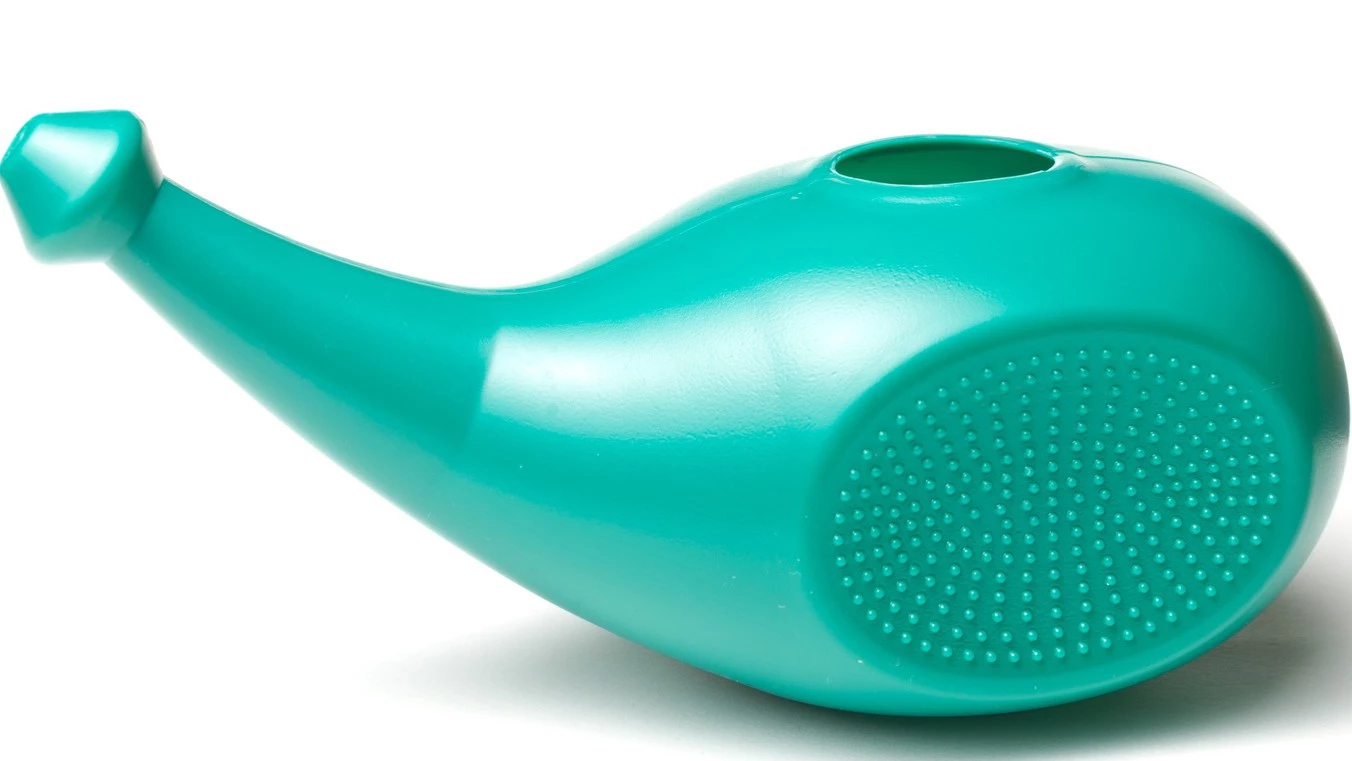Spring Allergies? 9 Natural Remedies to Find Relief

Spring is a great time of year in many respects, as the temperatures begin to rise and the days start getting a little longer. But as the added warmth and sunshine give us flower buds and new green leaves on trees, that also means a lot of trouble for those of us with spring allergies. Just when we want to get outside to shake off the dregs of winter, our sniffles, sneezes, and coughs can be enough to make us miserable.
But it doesn’t necessarily have to be that way. While we may not be able to eradicate seasonal allergies, there are lots of ways to find relief from them. And none of our suggestions involve taking pharmaceutical drugs that will leave you drowsy, dizzy or constipated.
Read on to learn nine natural tricks for easing your allergy symptoms and enjoy your spring much more.
1. Start Showering at Night
Even if you prefer to start your day with a shower, change your routine for the next few months. A nice warm shower at night will help clean any pollen that’s accumulated throughout the day off your body and out of your hair, which should help you to sleep more comfortably—not to mention keeping those allergens out of your bed where they can be a continual source of irritation each and every night.
2. Increase Vitamin D Intake 
Low levels of vitamin D have been linked to lots of health issues, including more problems with allergies. A 2013 study at McGill University in Canada showed that consuming adequate amounts of vitamin D may reduce allergies and prevent asthma. (1) Eat foods rich in vitamin D such as portabello mushrooms, fatty fish like salmon, and cod liver oil, and take a daily supplement of 1,000 to 12,000 IUs of vitamin D3 daily to ensure your intake is sufficient.
3. Filter Your Air
When you’re at home, you should keep the windows closed and make sure your air is well filtered. That means changing the filters on your central air or heating system once a month and getting the ducts cleaned every few years. In addition, it pays to invest in a high-quality HEPA filter to keep in your bedroom that can remove even fine particles of dust, pollen, and other irritants.
4. Consume Local Honey
If you can find honey produced in your area, you may be able to combat your seasonal allergies one spoonful at a time. Trace amounts of local pollen will be present, which may help build your immunity over time as was shown in a 2011 study at Helsinki University Central Hospital in Finland. (2) Note: It doesn’t work if you use the stuff on the shelf in the supermarket that’s produced elsewhere. As an added bonus, honey is a great natural cough suppressant at night if you’re dealing with a post-nasal drip.
5. Get That Laundry Done
It may not be the most enjoyable chore, but washing your clothes after each wearing can prevent them from collecting all sorts of allergens. And make sure you wash your bed linens once a week and dry them on the hottest setting to kill off dust mites. Just remember to use a dye-and fragrance-free detergent if you have sensitive skin.
6. Try a Saline Rinse 
You can clear your sinuses and lessen congestion with a thorough rinsing. Use a neti pot to flush water into your nose, through your sinuses, and back out again. It may take a few tries to become accustomed to the sensation, but stick with it if you can to thin and remove mucus.
7. Protect Your Bedding
Allergies are often worse at night because of the colonies of dust mites that make our beds their home. They feed on the miniscule particles of skin that we are constantly shedding, and many people are sensitive or allergic to dust mites and their droppings. To keep them from settling in your mattress, buy a zippered mattress cover with tight seams that prevents them from entering. Encase your pillows in protective coverings too.
8. Monitor Pollen Counts
Stay indoors when the weather reports say pollen counts will be at their highest, especially first thing in the morning.
9. Detox Regularly
Full body detoxing frees up your immune system so that there’s “more room” to accommodate new antigens from allergenic sources.
Material originally published at www.jonbarron.org
Used by permission of the Baseline of Health® Foundation.
All rights reserved worldwide.
Sources
(1). Poon, AH; et al. “Vitamin D deficiency and severe asthma.” Pharmacology & Therapeutics. November 2013. Accessed 15 February 2017. https://www.ncbi.nlm.nih.gov/pubmed/23792089.
(2). Saarinen, K.; et al. “Birch Pollen Honey for Birch Pollen Allergy—A Randomized Controlled Pilot Study.” International Archives of Allergy and Immunology. May 2011. Accessed 16 February 2017.
http://content.karger.com/Article/Abstract/319821.



